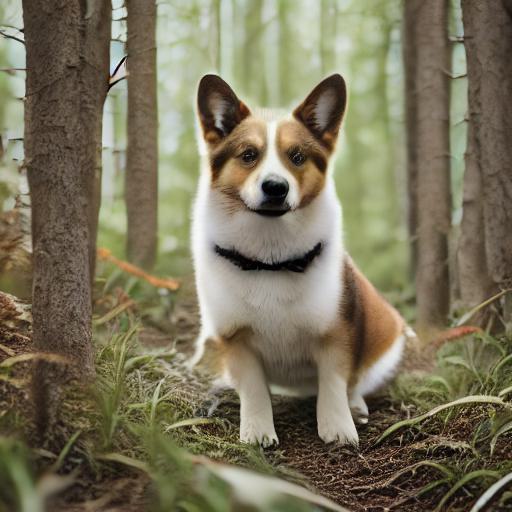language:
- en
pipeline_tag: text-to-image
library_name: diffusers
tags:
- lora
You Only Sample Once (YOSO)
 The YOSO was proposed in "You Only Sample Once: Taming One-Step Text-To-Image Synthesis by Self-Cooperative Diffusion GANs" by Yihong Luo, Xiaolong Chen, Jing Tang.
The YOSO was proposed in "You Only Sample Once: Taming One-Step Text-To-Image Synthesis by Self-Cooperative Diffusion GANs" by Yihong Luo, Xiaolong Chen, Jing Tang.
Official Repository of this paper: YOSO.
Usage
1-step inference
1-step inference is only allowed based on SD v1.5 for now. And you should prepare the informative initialization according to the paper for better results.
import torch
from diffusers import DiffusionPipeline, LCMScheduler
pipeline = DiffusionPipeline.from_pretrained("runwayml/stable-diffusion-v1-5", torch_dtype = torch.float16)
pipeline = pipeline.to('cuda')
pipeline.scheduler = LCMScheduler.from_config(pipeline.scheduler.config)
pipeline.load_lora_weights('Luo-Yihong/yoso_sd1.5_lora')
generator = torch.manual_seed(318)
steps = 1
bs = 1
latents = ... # maybe some latent codes of real images or SD generation
latent_mean = latent.mean(dim=0)
init_latent = latent_mean.repeat(bs,1,1,1) + latents.std()*torch.randn_like(latents)
noise = torch.randn([1,bs,64,64])
input_latent = pipeline.scheduler.add_noise(init_latent,noise,T)
imgs= pipeline(prompt="A photo of a dog",
num_inference_steps=steps,
num_images_per_prompt = 1,
generator = generator,
guidance_scale=1.5,
latents = input_latent,
)[0]
imgs
The simple inference without informative initialization, but worse quality:
pipeline = DiffusionPipeline.from_pretrained("runwayml/stable-diffusion-v1-5", torch_dtype = torch.float16)
pipeline = pipeline.to('cuda')
pipeline.scheduler = LCMScheduler.from_config(pipeline.scheduler.config)
pipeline.load_lora_weights('Luo-Yihong/yoso_sd1.5_lora')
generator = torch.manual_seed(318)
steps = 1
imgs = pipeline(prompt="A photo of a corgi in forest, highly detailed, 8k, XT3.",
num_inference_steps=1,
num_images_per_prompt = 1,
generator = generator,
guidance_scale=1.,
)[0]
imgs[0]
2-step inference
We note that a small CFG can be used to enhance the image quality.
pipeline = DiffusionPipeline.from_pretrained("stablediffusionapi/realistic-vision-v51", torch_dtype = torch.float16)
pipeline = pipeline.to('cuda')
pipeline.scheduler = LCMScheduler.from_config(pipeline.scheduler.config)
pipeline.load_lora_weights('Luo-Yihong/yoso_sd1.5_lora')
generator = torch.manual_seed(318)
steps = 2
imgs= pipeline(prompt="A photo of a man, XT3",
num_inference_steps=steps,
num_images_per_prompt = 1,
generator = generator,
guidance_scale=1.5,
)[0]
imgs
Moreover, it is observed that when combined with new base models, our YOSO-LoRA is able to use some advanced ode-solvers:
import torch
from diffusers import DiffusionPipeline, DPMSolverMultistepScheduler
pipeline = DiffusionPipeline.from_pretrained("stablediffusionapi/realistic-vision-v51", torch_dtype = torch.float16)
pipeline = pipeline.to('cuda')
pipeline.load_lora_weights('Luo-Yihong/yoso_sd1.5_lora')
pipeline.scheduler = DPMSolverMultistepScheduler.from_pretrained("runwayml/stable-diffusion-v1-5", subfolder="scheduler")
generator = torch.manual_seed(323)
steps = 2
imgs= pipeline(prompt="A photo of a girl, XT3",
num_inference_steps=steps,
num_images_per_prompt = 1,
generator = generator,
guidance_scale=1.5,
)[0]
imgs[0]
We encourage you to experiment with various solvers to obtain better samples. We will try to improve the compatibility of the YOSO-LoRA with different solvers.
You may try some interesting applications, like:
generator = torch.manual_seed(318)
steps = 2
img_list = []
for age in [2,20,30,50,60,80]:
imgs = pipeline(prompt=f"A photo of a cute girl, {age} yr old, XT3",
num_inference_steps=steps,
num_images_per_prompt = 1,
generator = generator,
guidance_scale=1.1,
)[0]
img_list.append(imgs[0])
make_image_grid(img_list,rows=1,cols=len(img_list))
You can increase the steps to improve sample quality.
Bibtex
@misc{luo2024sample,
title={You Only Sample Once: Taming One-Step Text-To-Image Synthesis by Self-Cooperative Diffusion GANs},
author={Yihong Luo and Xiaolong Chen and Jing Tang},
booktitle={arXiv preprint arxiv:2403.12931},
year={2024},
archivePrefix={arXiv},
primaryClass={cs.CV}
}



